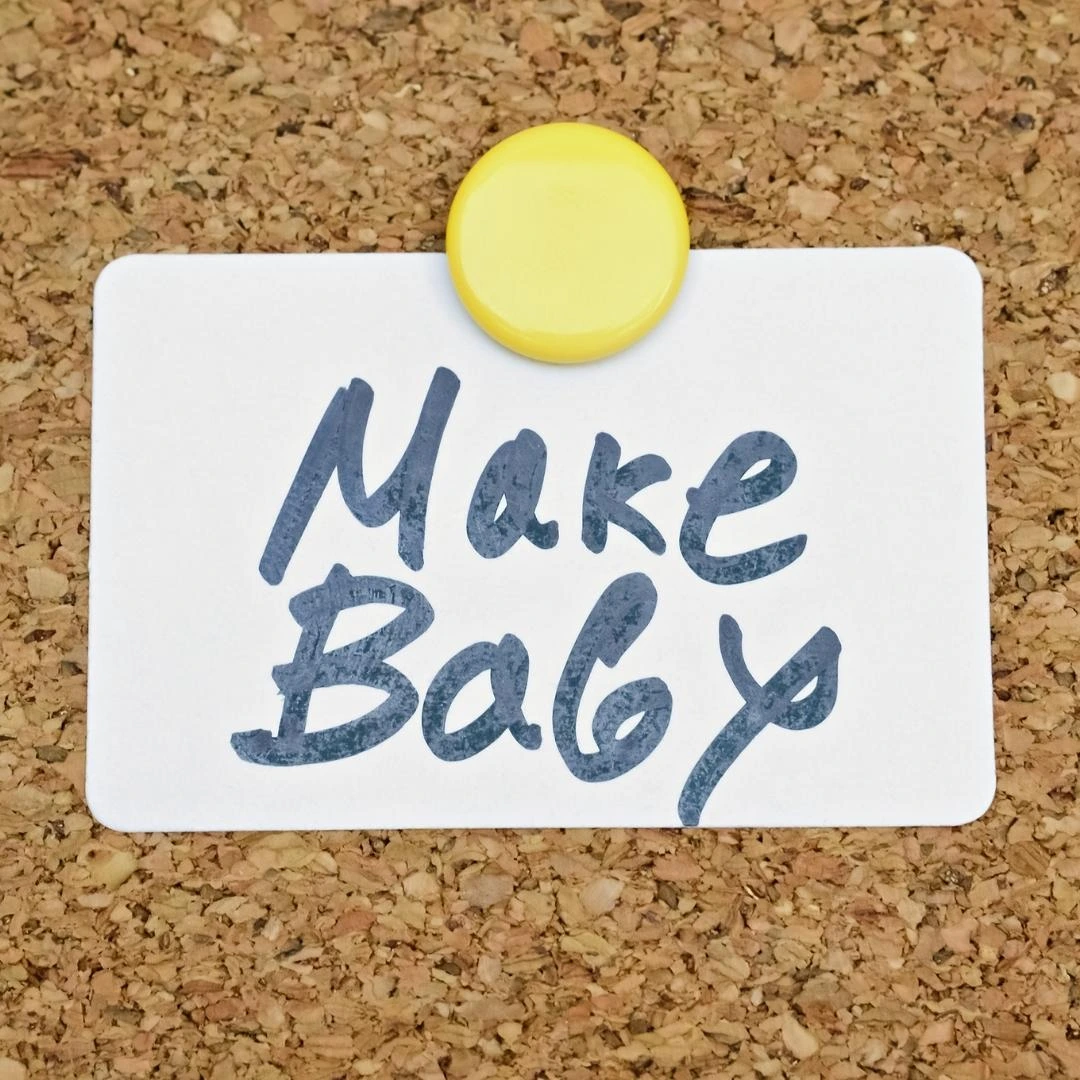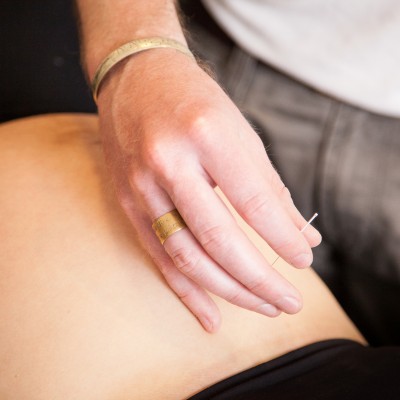
We know that around 80-84% of couples with healthy and fully functioning reproductive systems will be pregnant within 12 months, and 93% within two years. These couples have a 20% chance of conceiving on any one cycle and the chance is not cumulative ‒ it is a 20% chance each time. We also know that a variety of factors can affect your chance of conceiving, including your age, diet, lifestyle, fitness and stress levels. We will get to all of that, but let’s focus on sex first!
A fertility equationIf 100 couples try to get pregnant in January, about 20 will conceive, leaving 80 to try again in February. If another 20 per cent (or 16 couples) conceive, then 64 will be trying again in March. Continuing the one-in-five success rate, by the end of April roughly half will have successfully conceived. At this rate, after seven months 78 couples would have conceived (leaving 22 not yet pregnant). |
Trying to conceive (TTC) takes time – it is like predicting the weather really. It can look like rain, feel like rain, even have lightning and thunder and yet still hold off. It will rain eventually in most cases, but we can’t say exactly when. When you start TTC, if you can, try to keep hold of the understanding that you would like to conceive sometime over the course of the year. This will help avoid what many couples experience as the roller-coaster ride of TTC – the highs and lows that come with expectation and disappointment if you don’t have a positive pregnancy test; feelings that are often compounded by PMT!
Having said that though, research shows that if you can interpret your body’s signs of ovulation and time your sex and conception attempts to the fertile window, your chances of conceiving on any one cycle are significantly higher.
When is the best time to have sex?
Every pregnancy truly is a miracle of its own. When it comes to getting pregnant, it seems that many couples aren’t doing it right. A recent Australian study of women trying to conceive found that although more than half (68.2%) thought they were timing it right for conception, only 13% accurately estimated their day of ovulation.
Understanding the most fertile time of the female cycle is critical for conception to occur and it is so important to get good education and advice about this. An inaccurate understanding may contribute to delayed conception and many cases of ‘unexplained’ infertility. Women only have a small window in each reproductive cycle to conceive so it is important to get the timing right. While you can feel like you have been trying for months and months, if you are not focusing your efforts on this optimal window of time, the likelihood of conceiving is slim.
Jane’s Story
Jane had been trying to conceive based on when her app told her she was ‘flowering’. Sure enough, as her cycle was irregular (31-45 days), it was way off, saying that she was ovulating a lot earlier than she was and hence missing the fertile window for healthy conception. This couple tried the next month at the right time, and low and behold it worked! Jane also made diet changes and had started herbal medicine, but the timing was an important factor.
The Fertile Window
We know that eggs only live for 12-24 hours while sperm may be viable for up to five days (although most have very little vitality left after three). For optimal chances and the healthiest conception, ideally sperm will be ready and waiting in the fallopian tubes for when the egg is released by the ovary (ovulation). The best chances of conceiving occur with intercourse within the two days before ovulation and the day of ovulation. These three days are called your ‘Fertile Window’.
Technically, you do have a small chance of conception from five days prior to ovulation but you have the highest probability during this three-day window. This is also the best time for insemination for same sex couples or single women who are planning to time insemination at home. In most cases you don’t need to rely on technology or your doctor to tell you when this is occurring. Happily, there are signs to indicate the fertile window and that the egg is about to be released.
When is my fertile window?To improve your chances of conception, have sex during the two days prior to ovulation and the day of ovulation. e.g if you ovulate on Day 14 of your cycle, your most fertile days (and also the best to have sex) are likely to be days 12, 13 and 14. |
Having said that, ovulation can be affected by many factors – stress, weight (over and under), excessive exercise, excitement, travel, thyroid problems, polycystic ovarian syndrome and anaemia (as well as all the various types of infertility). Read on for more information on how you can understand how to determine your fertile window, but it is important to seek guidance with a qualified and experienced fertility professional if you are confused.
Where time permits, it is useful to check and record the signs and symptoms of your reproductive cycle for a few cycles before you try to conceive
Knowing your signs of ovulation and timing your sex with understanding of your cycle will give you an increased sense of confidence in your conscious conception. Marking secondary symptoms like headaches or fluid retention will give your fertility practitioner team very useful information about your cycle and hormones to assist with providing the best treatment for your individual needs.
Make sure you scan and email or bring your charts to every fertility related appointment where possible. Your practitioner will help you to understand and interpret your chart with ease. It may seem confusing at first, but within a few cycles it will become clear – a free and easy method to understand your cycle for your reproductive life.
For more information or to get help on your fertility or pregnancy journey, book in with a Fertile Ground Naturopath
References:
Crosignani P, Rubin B, The ESHRE Capri Workshop Group. Optimal use of infertility diagnostic tests and treatments. Hum Reprod. 2000;15(3):723-732. doi:10.1093/humrep/15.3.723.
Fritz MA, Speroff L. Clinical Gynecologic Endocrinology and Infertility. 8th edn. Philadelphia: Wolters Kluwer Health/Lippincott Williams & Wilkins; 2011.
Gnoth C, Godehardt D, Godehardt E, Frank-Herrmann P, Freundl G. Time to pregnancy: Results of the German prospective study and impact on the management of infertility. Hum Reprod. 2003;18(9):1959-1966. doi:10.1093/humrep/deg366.
Hampton K, Mazza D. Fertility-awareness knowledge, attitudes and practices of women attending general practice. Aust Fam Physician. 2015;44(11):840-845.
Jansen RPS. Elusive fertility: fecundability and assisted conception in perspective. Fertil Steril. 1995;64(2):252-254. doi:10.1016/S0015- 0282(16)57718-8.
Manders M, McLindon L, Schulze B, Beckmann MM, Kremer JAM, Farquhar C. Timed intercourse for couples trying to conceive. Cochrane database Syst Rev. 2015;3(3):CD011345. doi:10.1002/14651858.CD011345. pub2.
Sharma R, Biedenharn KR, Fedor JM, Agarwal A. Lifestyle factors and reproductive health: taking control of your fertility. Reprod Biol Endocrinol. 2013;11(1):66. doi:10.1186/1477-7827-11-66.
Te Velde ER, Eijkemans R, Habbema H. Variation in couple fecundity and time to pregnancy, an essential concept in human reproduction. Lancet. 2000;355(June):1928-1929. doi:10.1016/S0140-6736(00)03202-5.



